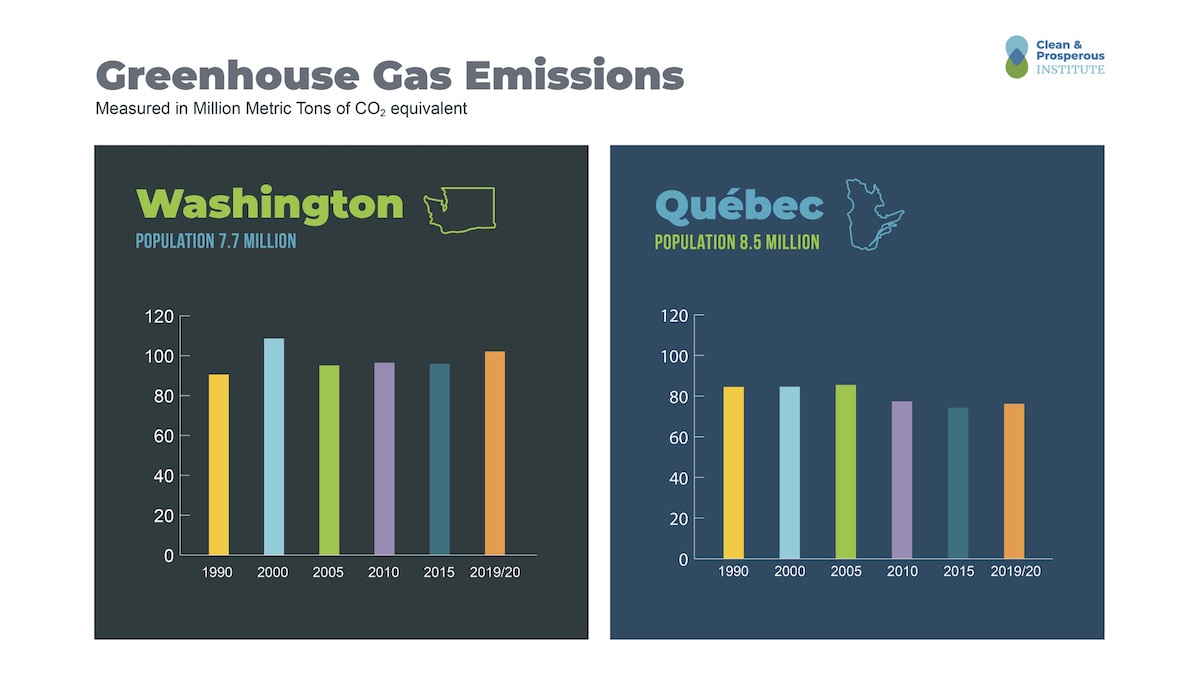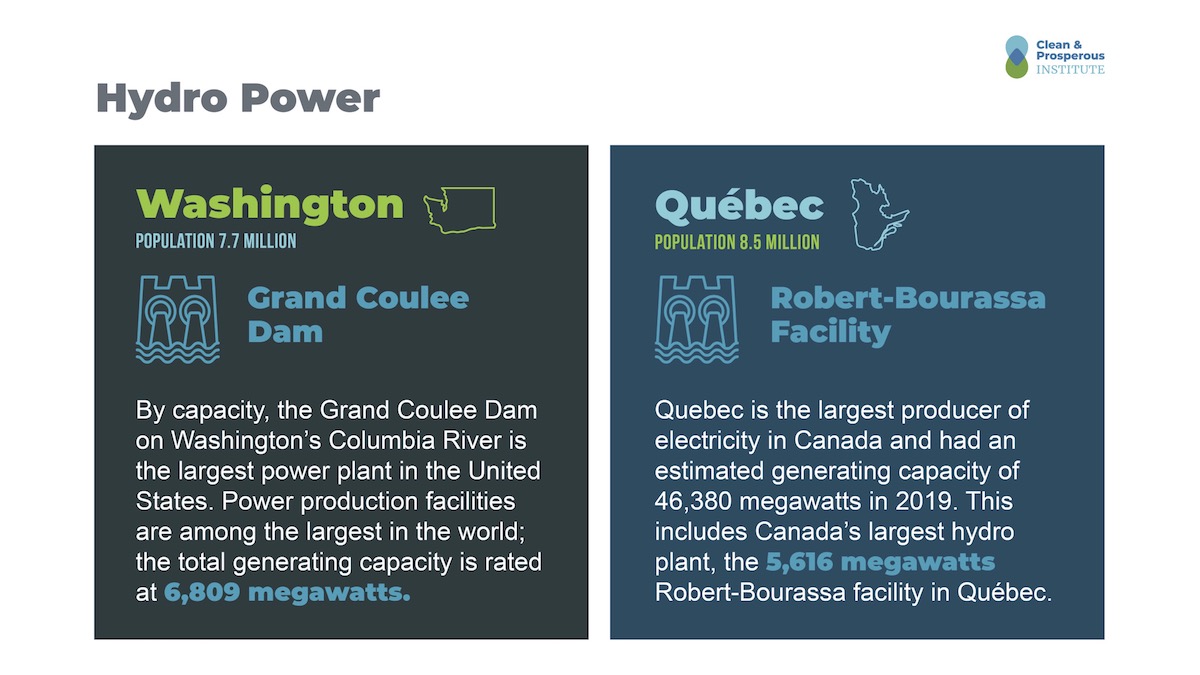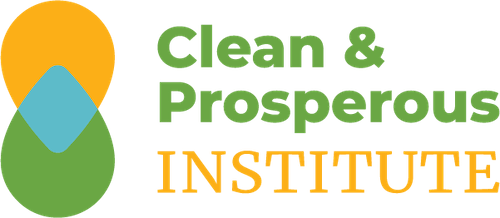Recently the Clean & Prosperous Institute led a delegation of government officials and business leaders to Québec to learn from their decade of experience with Cap-and-Invest, and visit clean energy facilities to get a firsthand look at how Québec is transitioning to a low-carbon economy.
The group of nearly 60 government, business and community leaders met with top government officials, spoke with local businesses, and toured clean energy sites which benefited from carbon revenue investments.The group was honored to have Cowlitz Indian Tribe Chairwoman Patty Kinswa-Gaiser co-lead our delegation, along with numerous elected officials including Senators Matt Boehnke, Joe Nguyen, and Jesse Salomon, and Representatives Jake Fey and Kristine Reeves, and King County Assessor John Wilson.
Welcoming the group were Grand Chief Rémy Vincent of the Huron-Wendat Nation, and Benoit Charette, Minister of the Environment & The Fight Against Climate Change.
Why Québec?
Though the fight against climate change – and the transition to a cleaner, more energy-efficient economy – is global, much of the power to take action is at the sub-national level. Last year, the Institute led two trips to California, where the group was briefed by officials in Sacramento. The group learned about electric school buses and dairy digesters in the Central Valley, toured the Tesla factory and a battery manufacturing plant in the Bay Area, and sailed aboard the world’s first hybrid electric passenger ferry on San Francisco Bay.
Because Québec has a decade of experience with its Cap-and-Invest system, and because Québec’s carbon emissions market is linked to California’s – and possibly soon also to Washington’s – it was decided that a study mission to Québec would provide valuable implementation lessons to be learned from Québec’s government ministries and clean energy businesses.
We also recognize that Québec and Washington have similar economies and similar ambitions. Both are strong in research and technology, aeronautics, hydroelectricity, agriculture, fishing, mining, pharmaceuticals, aluminum, wood, and paper. They produce more maple syrup while we lead in apples.
They have a slightly larger population, yet a smaller carbon footprint:

And we’re both leaders in the generation of hydroelectricity:

Much of the hydro comes from our two rivers:

Like Washington, Québec is home to some large oil refineries:

And just as Washington state is a clean economy leader in the U.S., Québec sets the pace in Canada. Québec introduced its Cap-and-Invest system ten years ago. Washington’s Cap-and-Invest system commenced this year and is designed to potentially link with the programs in Québec and California, meaning that businesses in one jurisdiction can use emission allowances issued by the others for compliance. This increases the number of businesses under the cap, which reduces compliance costs by creating more options for companies to reduce their emissions.
We also share some hockey history:

The Seattle Metropolitans beat the Montréal Canadiens to win the 1917 Stanley Cup. In 1919 Seattle and Montréal faced off again, but the series was canceled after the fifth game (tied 2-2-1) because of the flu epidemic. The Stanley Cup was not awarded that year. (Per the Seattle Times: “The greatest ice hockey series ever staged ends in a draw”.) Fascinating. Should we start a petition to resume that series, now that Seattle again has a team? (Let us know on Twitter.)
Meanwhile, stay tuned for a short series on Lessons Learned from Québec. First up: Linking to Québec’s Carbon Market.

